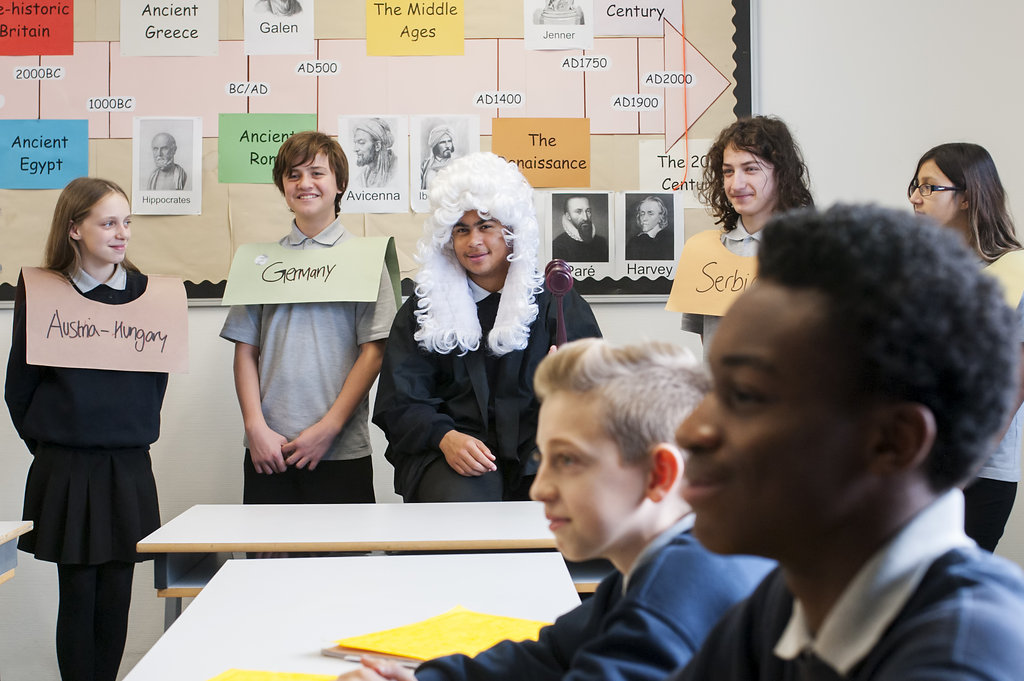The Key Stage 3 curriculum covers a combination of British, European and world history and provides a varied approach to studying the past, examining topics both thematically and in depth. In Years 7 and 8, students study the themes of migration, Britain’s place in the world, protest and representation; this helps them identify patterns or note key turning points in history. Students will focus on several key topics in depth over the course of the year and identify and explain how these case studies relate to the broader overarching theme. In Year 9, students study twentieth century European and world history as part of the wider theme of a century of extremes.
YEAR 7 – Migration and Britain’s place in the world since c500BC-present
Year 7 begins with an introduction into representative history that gives each student a voice through understanding their own migration and historical journey. We assess the main reasons for migration and the experience of migrants throughout British history from the Romans to the present day. We also develop further understanding of Britain’s place in the world and how it has shaped and continues to shape global affairs by analysing the rise and fall of the British Empire.
- What is history? An introduction into the study of history
- Early migration to Britain and its impact, c500BC-c1350AD
- The impact of the Renaissance on Britain, c1500-c1700
- The rise and fall of the British Empire, c1600-c1960s
- How has migration shaped modern Britain?
YEAR 8 – Protest and representation of the people, c1215-present
In Year 8, students study the theme of protest and representation throughout British history. We attempt to engage students in the countless examples of heroic strides for equality. We also look to representative histories by such as African Kingdoms and Europe’s relationship with West Africa prior to the slave trade and the story of women’s rights during the 20th century.
- Magna Carta and its legacy on British democracy
- The Black Death, its social impacts and the Peasants’ Revolt of 1381
- The African relationship with Europe prior to the Transatlantic Slave Trade
- The development of the Transatlantic Slave Trade and its abolition
- A comparison between the UK and US Civil Rights’ Movements
- The Women’s Movement from Suffrage to Feminism in Britain
- Ireland and the fight for independence
YEAR 9 – A Century of Extremes, c1900-present
Year 9 exposes students to the turbulent 20th century and assesses why and how it became known as a century of extremes. These extremes will analyse the scale and impacts which will equip students with the political language needed to understand how ideologies underpin the decision making of governments and continue to shape the political landscape of the world today.
- The First World War
- The Russian Revolution
- The Soviet Union under Stalin
- The Holocaust and the longer history of anti-semitism
- The Israeli-Palestine Conflict
HOMEWORK
At Key Stage 3 it is the intention that students will be set two pieces of homework within a half-term period. This homework is designed to consolidate knowledge and prepare students for upcoming assessments. One homework will be set via Seneca learning and one will be the completion of the knowledge grid at the end of each booklet a week before the assessment.
JRCS History Projects Website
We are delighted to share this new website designed to provide students with extensive independent study activities. You will find numerous guided projects, links to excellent history websites and recommended documentaries.





